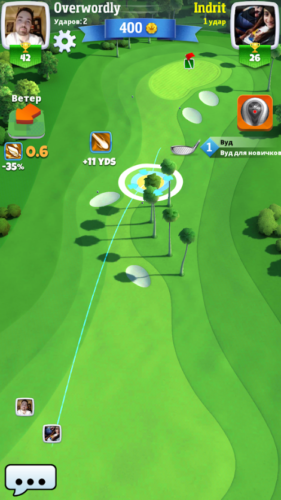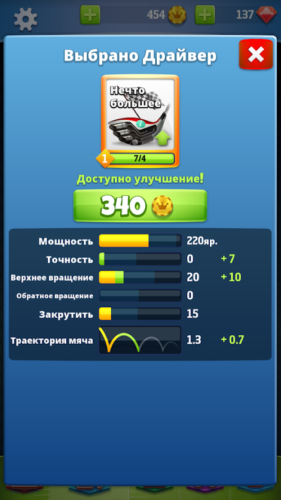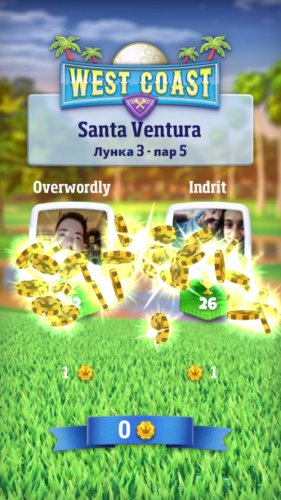Deconstruction of Golf Clash, the most successful ideological successor of Clash Royale
Among the numerous imitators of Clash Royale, the golf simulator Golf Clash has achieved the greatest success. The game is among the top twenty highest-grossing mobile games in the United States and earns more than $ 10 million per month. Why she succeeded,” Adam Telfer, co—founder of Chatterbox Games, told GDC.
We offer a free arrangement of Adam’s slides, published in mid—April on his blog – MobileFreeToPlay.
Introduction to Golf Clash
Golf Clash is a PvP golf simulator with a harness from Clash of Clans. So the game can be described briefly.
The key gameplay is the competition of two players with each other in real time. Players take turns hitting the ball, throwing it closer to the hole. The task is to score the ball in the minimum number of attempts. Whoever does it first, that’s the victory.
There are many types of balls and clubs in the game. They can be pumped. It works the same way as in the Supercell game. The more copies of one stick are collected, the better it can be pumped.
Instead of arenas (stages that open up to the player as they progress), there are tours in the game. The size of the bet, the amount of winnings and the number of cups that will be given or withdrawn for victory or defeat depend on the selected round.
The in—game cycle is familiar to the player in Clash Royale. The main gameplay gives loot boxes, the player receives content from them, the content goes to pumping, which improves the user’s gaming results in the main gameplay.
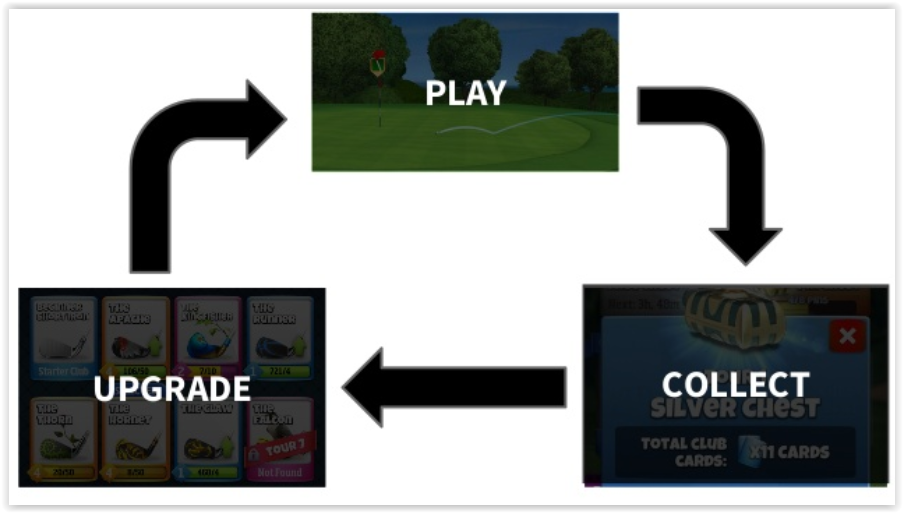
Golf Clash took the mechanics of Clash Royale, but refused to compete with it
Despite the different genre of the main gameplay, Telfer considers Golf Clash to be one of the imitators of Clash Royale. He explains the success of the golf simulator precisely by the fact that its developers did not follow in the footsteps of many other teams who wanted to repeat the success of Supercell.
Most of the projects that adopted Clash Royale mechanics focused on repeating the gameplay, stylistics, or even took up recreating all the elements of the Finnish game based on the popular IP.
Their common mistake was that, regardless of the chosen approach, they always remained within the framework of the already occupied Clash Royale audience.
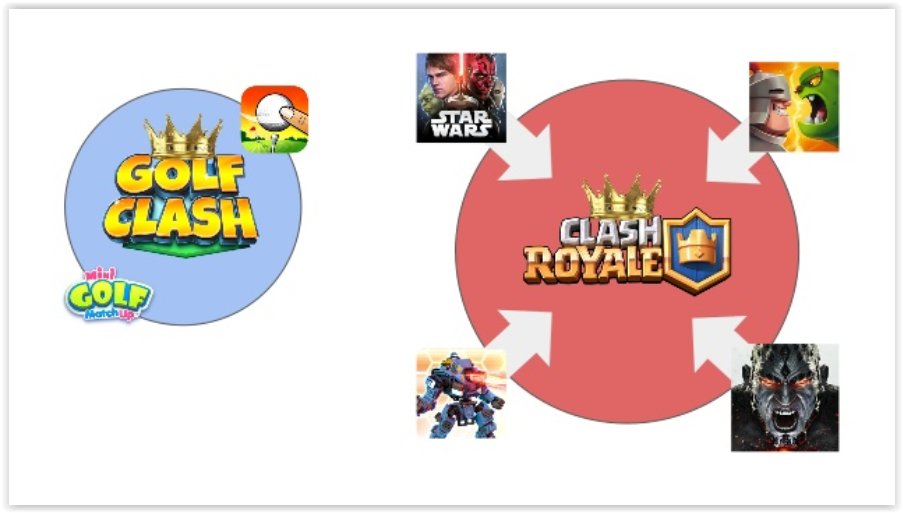
Golf Clash developers have chosen a completely different niche. So the game did not compete with the original. At the same time, she was immediately in the lead in the selected segment. No other golf could compete in terms of retention and monetization with the mechanics taken from Clash Royale.
Telfer praises the chosen approach. But he immediately warns: such a mix is difficult to do right. You can’t just take a new key mechanic and connect it to the desired meta. That’s not how it works.
At Playdemic, everything turned out not only because she took and assembled her own from pieces of different games. The hybrid worked, among other things, thanks to following and taking into account less obvious points.
The first point: maintaining a balance between luck and skill of the game
In Golf Clash, we managed to repeat the success of Clash Royale in adjusting the balance. In the Supercell game, it works fine, because it obeys the principle “characteristics affect gameplay, but the skill of the game determines the victory.”
Telfer reveals the principle as follows:
1. Each game entity affects the game in an obvious way for the player.
For example, a boar rider moves fast and specializes in destroying buildings.
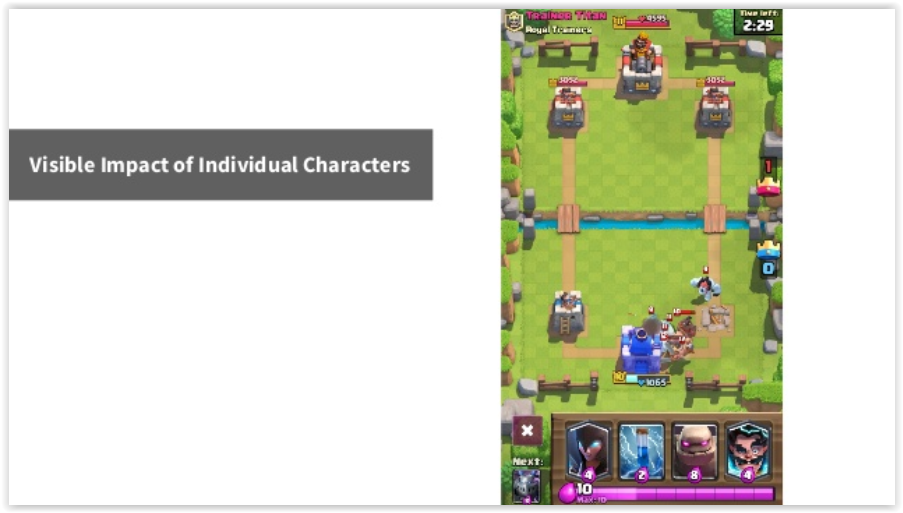
2. There are many characteristics in the game. All of them are important, visual, and they can be raised.
For example, improving minions increases their attack and life bar. Thanks to this, they become stronger on the field.
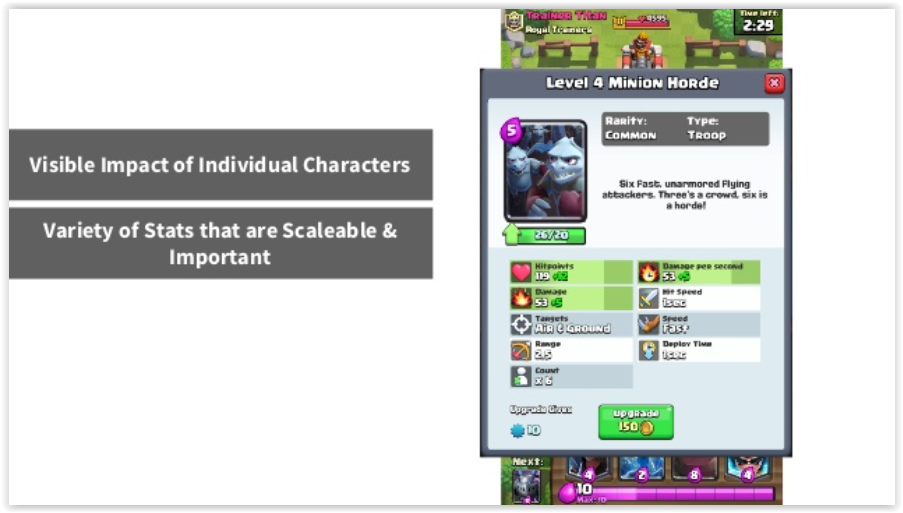
3. Despite the fact that the characteristics can be raised by increasing the strength of their own deck, the determining factor for victory remains how the user plays.
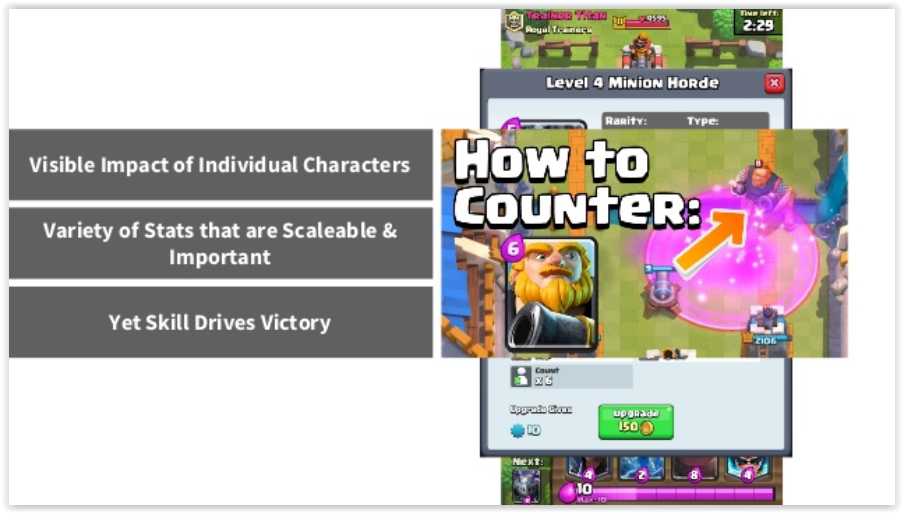
Golf Clash perfectly recreated this principle with an eye to its own specifics:
1. The player sees what effect each stick has on the gameplay.
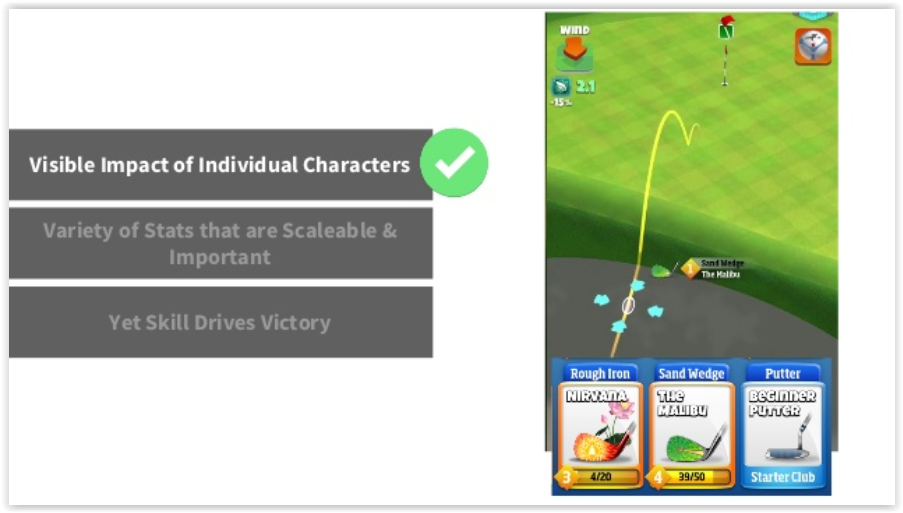
2. In the game, clubs have many scalable characteristics.
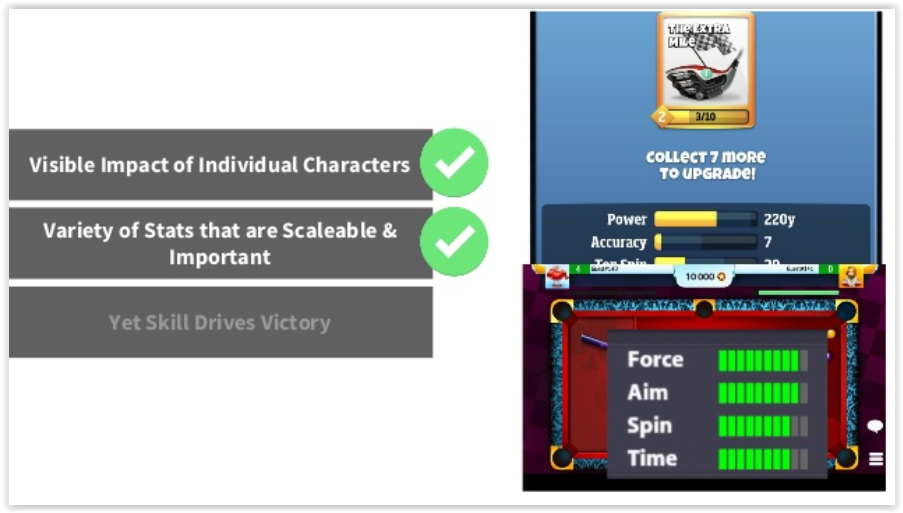
3. The effect of improvements is noticeable, but the victory in the game is still determined by the skill (or it seems that victory is determined by it).
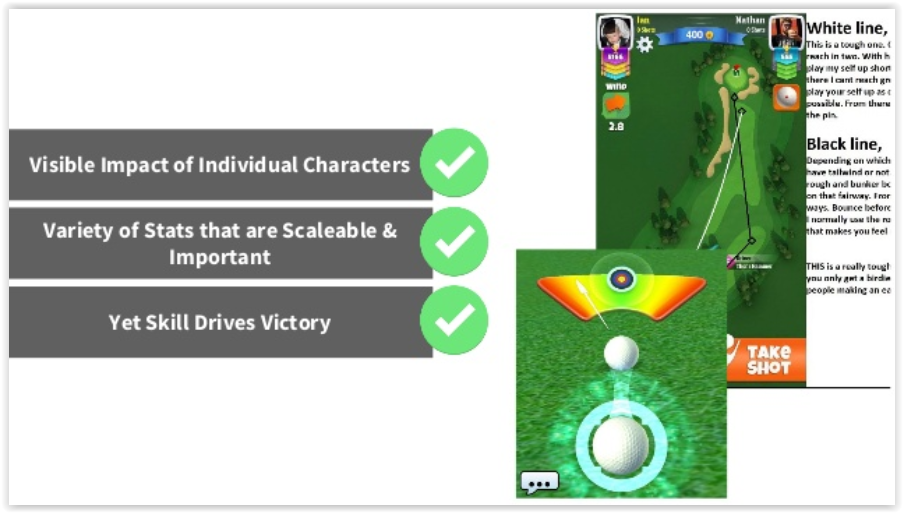
The second point: preserving the gacha and the importance of all cards
In Clash Royale, a player’s pool of cards depends on their progress. The gacha is set up so that the cooler the player, the greater his choice of cards, the more diverse the content can fall out of the chests. Only what corresponds to his level of development falls out (i.e., including from the point of view of skill, since even with a good deck, a bad player will not rise high). At the same time, there are no extra cards.
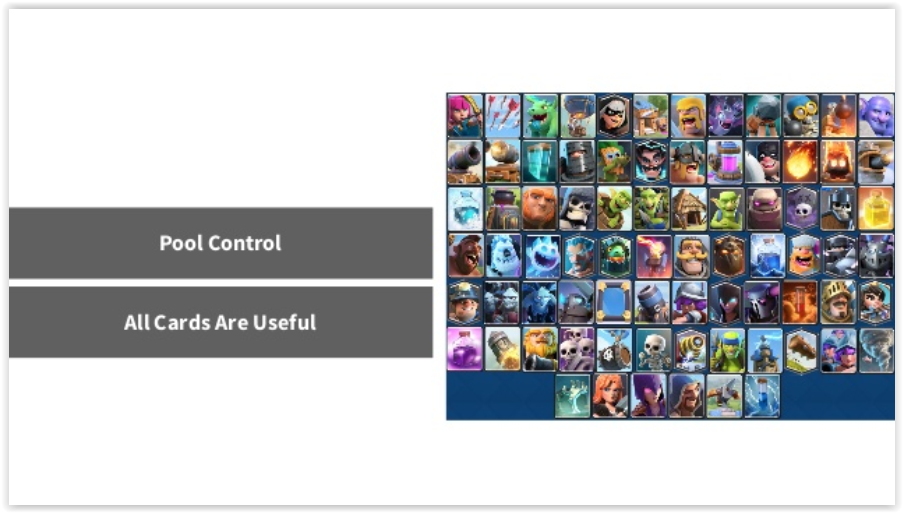
Golf Clash follows the same principle. There is a “controlled pool” of cards. The player receives chests for victories exclusively with the content that corresponds to his level of progress. For example, when winning Round 1 and winning Round 10, a player can get the same-looking chests. But the chest for winning Round 10 will contain more diverse content, since it will include all the variety of content from Round 1 to Round 10.
Also, all the cards (here — clubs) are needed for the game. The latter is achieved through level design. The game is dominated by complex maps, on which it is important not only how accurately or with what force you will make a shot, but also how many jumps the ball will make after touching the ground, how much it will spin. Depending on the card, it matters what kind of stick you have.
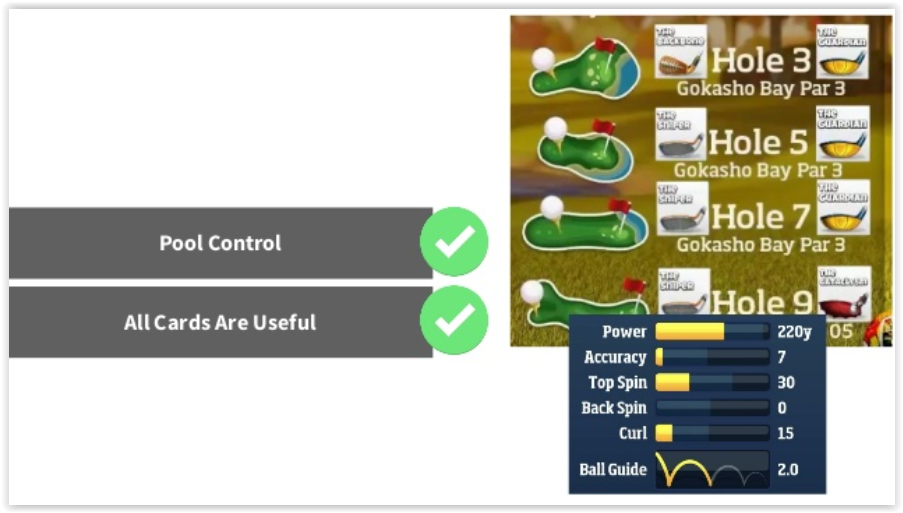
The third point: dynamic meta compensation
Golf Clash does not belong to the type of PvP games that support dynamic meta. Players compete to win, but do not affect each other’s results. The competition actually takes place on two independent fields.
Therefore, Golf Clash compensates for this key mechanics for CCG games, in which competition usually takes place with different sets of cards of different levels and interacting with each other in different ways, with other tools.
First of all, it is a betting system of 8 Ball Pool. Participation in any match costs participants a certain number of chips. The reward for winning is just the sum of the bets. If the chips run out, they have to be bought up.
In addition, the game focuses heavily on various events, sales, targeted offers, leagues and competitions. For example, in the latter, any kick on the ball costs real money.
Telfer believes that with this additional and diverse content, Playdemic gets from an economic point of view to the usual CCGs with dynamic meta.
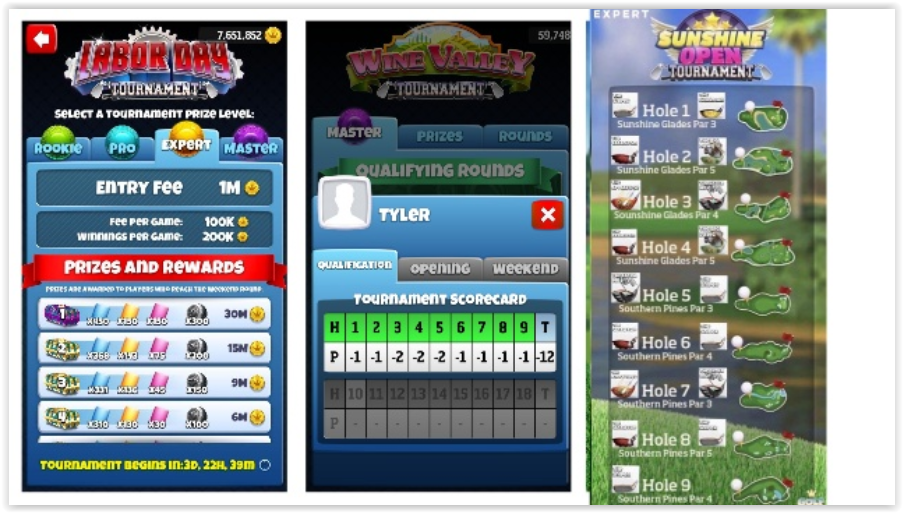
Conclusion
The scenario “take the mechanics from Clash of Clans and replace the gameplay” from the authors of Golf Clash worked. However, this was not a direct copy. In some cases, the principles and tools of one game have been adapted, taking into account the new specifics, or even replaced with more suitable solutions. And the most important thing is that the new project from the very beginning was designed for an audience that does not overlap with the one that plays Clash Royale.
Source: MobileFreeToPlay
